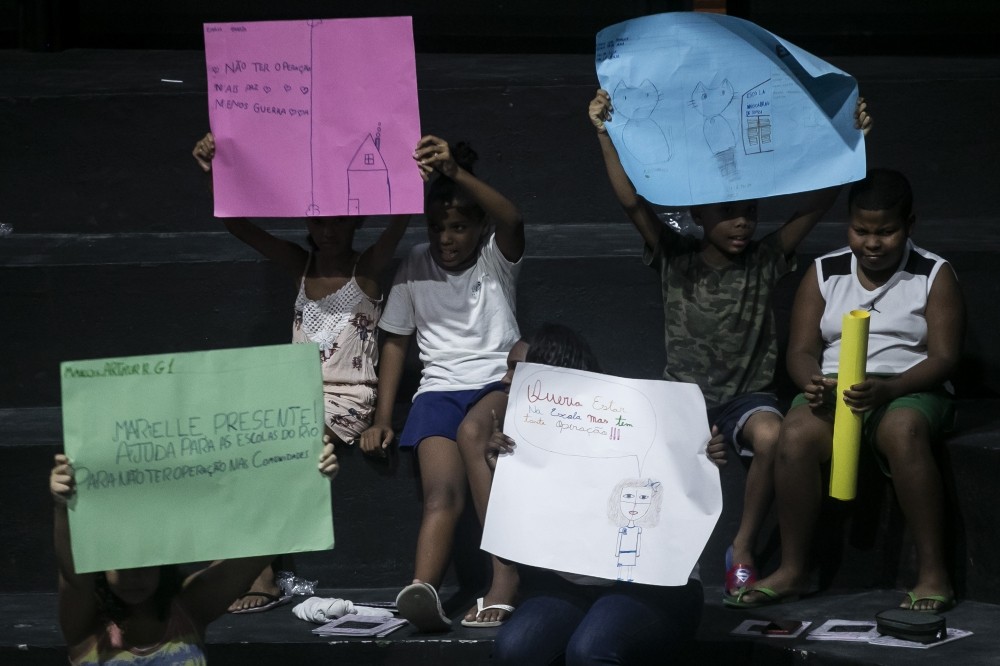27/03/2024
27/03/2024

RIO DE JANEIRO, March 27, (AP): Dozens of kids and teenagers from Rio de Janeiro's Mare neighborhood gathered for the launch of a book in which they show, with their own words and pictures, how violence in their poor, bayside community weighs on their young lives.
The book, titled "I Was Supposed to be at School,” features drawings and testimonies collected from youngsters aged between 5 and 17.
All too often, when Rio state's military police conduct operations and face off with local drug traffickers, class is canceled and they take shelter behind washing machines, under their beds or far from windows that a stray bullet might shatter. Mare is one of Rio's most populous favelas, with about 130,000 residents.
"Some policemen invade our houses. They turn things upside down, they attack, they even steal our food,” according to one child’s account in the book, which launched Monday.
"Sometimes police fire at children, too,” another account says, going on to reference 14-year-old Marcus Vinícius da Silva, whose death in 2018 sparked outrage and protests. Residents say police shot him in the back as he left home for class, but the case remains unsolved and sealed by Rio police.
The book's phrases came directly from the youngsters and collected in partnership with nonprofit Redes da Mare, according to creator Isabel Malzoni. The book doesn't list the names of the children involved.
"We and the nonprofit in Mare agreed with the families that the anonymity of the children was critical for the project so the children and their parents felt safe about it. It was a condition for the project to exist,” she said later.
The project's trigger was a surge of police raids in 2019, the year Jair Bolsonaro became Brazil's president and ally Wilson Witzel became Rio's governor, after both campaigned with pledges to give police carte-blanche to use lethal force against criminals. During that year, Mare saw 41 police operations resulting in 42 deaths and 35 days without school for local children, according to Redes da Mare and Rio de Janeiro state public defender’s office.


